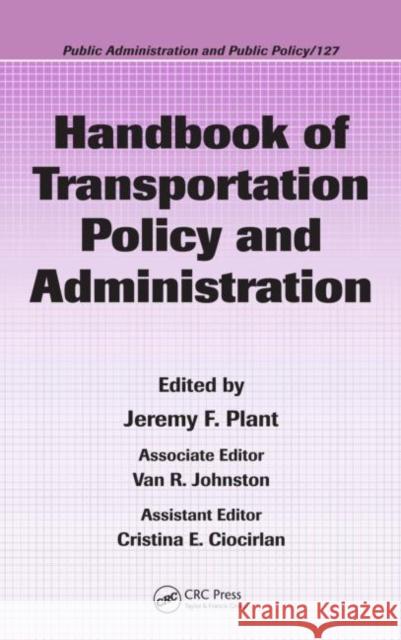Handbook of Transportation Policy and Administration » książka
Handbook of Transportation Policy and Administration
ISBN-13: 9781574445657 / Angielski / Twarda / 2007 / 656 str.
In the past few decades, the field of transportation has changed dramatically. Deregulation and greater reliance on markets and the private sector has helped to reconfigure the transport industries, while the rise of intermodal goods and global commerce has produced efficiencies of operation and a greater interdependence among transport modes. In addition, security issues have moved to the forefront as officials struggle with the challenge of protecting the vast transportation system while maintaining its operational efficiencies and effectiveness. Taking a multidisciplinary approach, the Handbook of Transportation Policy and Administration addresses the changes facing the field of transportation. Organized into five sections, it describes and analyzes major modes of transportation and components of the contemporary transportation system. Later chapters consider policy and administration and focus on managing transportation systems and assets. The final section covers security and protection of transportation systems. The handbook explores continuing development in the US and other nations, with an emphasis on the challenges created by technological change, globalization of the world economy, and the threat of terrorism. It examines the current state of major modes of transportation (air, rail, highways, waterways, ports, urban mass transit) and presents public policies and management approaches to make transportation systems efficient, innovative, and responsive. Drawing from scholars in a wide range of disciplines, including public policy, public administration, geography, economics, business logistics, engineering, and management, the Handbook of Transportation Policy and Administration serves as a comprehensive, single-volume reference for scholars, students, public officials, business and civic leaders, and transportation practitioners.











